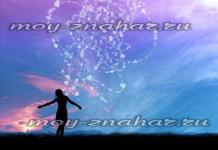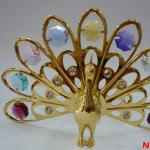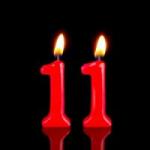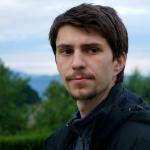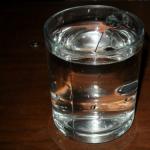What is the "Institute of Medicine"?
"Institute of Medicine" is a system distance learning National Academy of Modern Technologies.
The Academy is registered by the Ministry of Justice of the Russian Federation.
Among the teachers of the Academy are doctors, candidates of sciences and practitioners with extensive work experience. The Academy recruits students for additional professional programs, actively cooperates with both physical and legal entities, provides services on the provider portal.
How to apply for advanced training and training?
The form of training in advanced training programs is part-time (with the use of distance technologies, via the Internet). You can complete the training program without leaving your home. The Institute of Medicine provides all students with access to a unique educational system that contains all necessary materials.
- select the desired program
- register for it
After the formation of a personal file and payment for training, each student on the site has access to the educational system through a personal account. All the necessary materials for the study and implementation of the curriculum are placed in the personal account.
Materials. We provide our students with up-to-date educational materials, so you don’t have to look for anything extra. Lecture materials are presented in pdf format, they can be studied through Personal Area(online viewing), download to any electronic devices and media, and print if necessary.
Training schedule. For each student in his personal account, a schedule of the educational process will be presented, containing recommendations for mastering the disciplines. Since the training is remote, each student can adapt the training schedule, determine the order of studying the materials and performing tests for self-control. You can start training on any convenient business day. After educational materials will be placed in your personal account, they will be saved during the entire period of study.
Academic plan. In order to fulfill the established curriculum and successfully complete the training, careful study of the materials is necessary. The final examination (answers to five tasks) compiled on the basis of the course materials is provided as an attestation event.
If the student, for good reason, does not have time to complete the curriculum for the entire period of study, he can be extended the course for some more time, and this is completely free of charge.
Completion of training and receipt of documents. The program can be considered completed if the student does not have an academic debt by the end of the study period and all documents necessary for a personal file are provided. Preparation of qualification documents after completion of the course is carried out within 1-10 working days (usually 3-4 days). Students can receive documents either by Russian Post (sending by registered mail) or in person.
How to apply for vocational retraining and training?
The form of education in professional retraining programs is part-time (with the use of distance technologies). You can complete the training program without leaving your home. The Institute of Medicine provides all students with access to a unique educational system, provides unlimited access to all necessary materials during the training period.
To enroll in the program, you must complete the following steps:
- select the desired program
- register for it
- make a payment (online or by bank receipt)
Making a personal file. The student of the courses must fill in the Questionnaire in his personal account to receive the proforma of the Application and the Agreement for a personal file. The signed set of documents is sent electronically through a personal account.
Materials. We provide our listeners with up-to-date materials, so you don't have to look for anything extra. Lecture materials are presented in pdf format, they can be studied through a personal profile (online viewing), downloaded to any electronic devices and media, and also printed if necessary.
Training schedule. Since the training is distance learning, each student can adapt the training schedule, determine the order of studying materials, passing tests and exams. You can start training on any convenient business day. After the training materials are posted in your personal account, they will be stored throughout the entire training period.
Academic plan. In order to fulfill the established curriculum and successfully complete the training, it is necessary to study the materials and timely completion of certification activities. For each discipline, testing is provided, compiled exclusively on the basis of lecture materials. Each test can be taken several times (the main attempts are three, it is possible to receive additional attempts for free). Of all the attempts to pass, the best result is recorded as the final one.
In addition to testing by disciplines, the implementation of the Final control work(answers to five tasks), also compiled on the basis of the course materials, and the Final interdisciplinary exam (testing).
In the event that the student, for good reasons, does not have time to complete the curriculum on time, he can be extended the training for some more time, and this is completely free of charge.
Completion of training and receipt of documents. The program can be considered completed if the student has no academic debts by the end of the period of study and all documents necessary for personal affairs are provided. Preparation of a diploma of vocational retraining with the assignment of a qualification after the completion of the course is carried out within a maximum of 10 working days. Students can receive documents either by Russian Post (sending by registered mail) or in person.
What documents are required for admission to professional retraining?
For persons wishing to study under the professional retraining program, the following set of documents is required:
- copy of passport (without registration page);
- a copy of the document on the change of surname / name / patronymic (if required);
What documents are required for admission to advanced training?
For persons wishing to enroll in the advanced training program, the following set of documents is required:
- a copy of the diploma of secondary vocational or higher medical education
- a copy of the document on the change of surname / name / patronymic (if the full name in the diploma does not match the current ones);
- contract and application (generated automatically).
Will there be qualifications on the diploma?
Graduates who successfully complete their studies and provide a diploma of higher or secondary vocational education are issued a diploma of professional retraining with the assignment of a qualification. In the issued document, the qualification assigned to the graduate must be reflected in a separate entry. The exact titles of the qualifications are reflected on the individual course pages. Other options for recording qualifications are not allowed.
No you can not. The current legislation establishes a single requirement for applicants for additional professional programs: a diploma of medical education.
What to choose: advanced training or professional retraining?
The website of the Institute of Medicine presents additional professional programs, which include professional retraining programs and advanced training courses.
Professional retraining ends with the issuance of a Diploma of professional retraining with the assignment of qualifications. This type of program is designed for those who need to obtain a medical qualification for employment or to meet educational requirements at work.
Refresher courses are programs that systematically (every 3 years) must be taken by all doctors to confirm qualification category, compliance with the current educational standard. Unlike professional retraining programs, advanced training programs do not award qualifications, they are designed for people who are doctors. The courses end with the issuance of a certificate of advanced training established in accordance with the requirements of the legislation of the sample.
From 04 to 05 July 2020 on the basis of NOCHUDPO "Training Center for Continuing Medical and Pharmaceutical Education" will take a refresher course on the topic: "Ultrasound navigation and electromyographic control in the treatment of cervical dystonia with botulinum toxin type A".
June 13-14, 2020 "The use of botulinum toxin type A in the treatment of dysfunction of the temporomandibular joint (bruxism)". The training is conducted by the leading neurologist of the Clinic of Headache and Autonomic Disorders Academician Alexander Vein, Associate Professor of the Department of Nervous Diseases of the Institute of Postgraduate Education of the First Moscow State Medical University. THEM. Sechenov, Ph.D. Latysheva Nina Vladimirovna .
Course specifics: The course is aimed at both practicing BTA doctors and beginners.
Location: Medical Center "Practical Neurology", 117218, Moscow, st. Krzhizhanovsky, 17, building 2, location map
From 06 to 07 July 2019 on the basis of NOCHUDPO "Training Center for Continuing Medical and Pharmaceutical Education" a refresher course will be held on the topic: "The use of botulinum toxin type A in the treatment of facial hyperkinesis and blepharospasm".
From 20 to 21 July 2019 on the basis of NOCHUDPO "Training Center for Continuing Medical and Pharmaceutical Education" a refresher course will be held on the topic: "The use of botulinum toxin type A in the treatment of local hyperhidrosis".
From 13 to 14 July 2019 on the basis of NOCHUDPO "Training Center for Continuing Medical and Pharmaceutical Education" a refresher course will be held on the topic: "Polyneuropathies. Comprehensive diagnosis of hereditary diseases of the nervous and muscular system” .
Training conducts Kurbatov Sergey Alexandrovich
Course specifics: the course is aimed at obtaining hereditary polyneuropathies based on modern international experience.
From 16 to 17 November 2019 on the basis of NOCHUDPO "Training Center for Continuing Medical and Pharmaceutical Education" a refresher course will be held on the topic: « Myotonia. Comprehensive diagnosis of hereditary diseases of the nervous and muscular system” .
Training conducts Kurbatov Sergey Alexandrovich , Candidate of Medical Sciences, Neurologist, Neurogeneticist, Doctor of Functional Diagnostics, Voronezh Regional Clinical Consultative and Diagnostic Center, member of the NGO "Society of Specialists in Neuromuscular Diseases"
Course specifics: the course aims to differential diagnosis skills hereditary myotonia based on modern international experience.
From 27 to 28 July 2019 on the basis of NOCHUDPO "Training Center for Continuing Medical and Pharmaceutical Education" a refresher course will be held on the topic: Dystonic hyperkinesis in the practice of a neurologist. The use of botulinum toxin type A in the treatment of dystonic hyperkinesis".
From 02 to 03 February 2019 « Myopathies. Comprehensive diagnosis of hereditary diseases of the nervous and muscular system. .
From 08 to 09 December 2018 on the basis of NOCHUDPO "Training Center for Continuing Medical and Pharmaceutical Education" an author's express advanced training course will be held on the topic: «Peculiarities of medical communication in English. Patient at the doctor's office .
Training conducts Zubarev Kirill Vadimovich, professional linguo-coach (English, Spanish), has teaching experience in the leading universities of Moscow: Moscow Pedagogical State University», Russian Institute theater arts (GITIS), ANO VO "Moscow humanitarian University", NRU " graduate School Economics”, ANO VO “Institute of Contemporary Art”. Author of programs for learning Spanish and of English language in the largest companies: Novartis, Sibneft, PSI, Alfa Bank, Winery Hall, Café Cavita, etc.
"Algorithms for electroneuromyographic examination of patients with suspected neuromuscular diseases".The training is conducted by the Chairman of the NGO "Society of Specialists in Neuromuscular Diseases", General Director of the Medical Center "Practical Neurology", Leading Neurologist, Doctor of Functional Diagnostics professor, d.m.s. Nikitin Sergey Sergeevich. Assists Murtazina A.F.(neurologist, doctor of functional diagnostics).
Course specifics: the course is designed for medical professionals who have mastered the method of electromyography and have been practicing it for at least 1 year. Aimed at gaining skills in building a research algorithm for different levels damage to the peripheral neuromuscular apparatus, interpretation of the data obtained and execution of the conclusion of the study.
Department head
Doctor of Medical Sciences, Professor
Zykov Valery Petrovich
Head of Education
Candidate of Medical Sciences, Associate Professor
Chuchin Mikhail Yurievich
125373, Moscow, st. Geroev Panfilovtsev, 28, Children's City Clinical Hospital. PER. Bashlyaeva
| Full name | Academic degree | Academic title | Job title |
| ZYKOV Valery Petrovich | Doctor of Medical Sciences | Professor | Professor |
| Co-chairman of the children's section and member of the Presidium of the Society of Neurologists of Russia, member of the editorial board of the journals Neurology and Psychiatry named after S.S. Korsakov, Life with Cerebral Palsy, Epilepsy and Paroxysmal Conditions, member of the International Association of Child Neurologists, scientific secretary of the Academic Council RMAPO "Pediatrics and Surgery" N.N. Pirogova "Nervous diseases, mathematical biology". Under the editorship of Professor V.P. Zykova, in collaboration with the staff of the department, published guidelines for doctors: “Diagnostics and treatment of diseases nervous system in children" (2006), "Diagnosis and treatment of hereditary diseases of the nervous system in children" (2008), "Treatment of diseases of the nervous system in children" (2000, 2004, 2009), "Diagnosis and treatment of diseases of the nervous system in children" (2013 ), monograph "Tics in Children" (2002), study guides: "Research Methods in Child Neurology" (2002), "Children's Neurology in Questions and Answers" (2003), "Checkpoints in Neurology childhood"(2005), "Diagnosis and treatment of stroke in children" (2006, 2008), "Ischemic stroke in children" (2011), "Sleep disorders in children" (2011). Research interests - tics in children, movement disorders, strokes, epilepsy early age, neurorehabilitation concept. |
|||
| MILOVANOVA Olga Andreevna | Doctor of Medical Sciences | docent | Professor |
| The direction of clinical activity is congenital malformations of the brain, epilepsy and epileptic syndromes in children and adults, diseases of the nervous system of the perinatal period, cerebral palsy, tics, psychosomatic disorders. Author / co-author of more than 120 scientific papers, two monographs: "Absence epilepsy in children and adolescents: clinic, diagnosis, treatment", "Epilepsy and epileptic syndromes of infancy, childhood and adolescence (clinic, diagnosis, treatment, differentiation with non-epileptic paroxysms)" , co-author of two clinical guidelines. |
|||
| CHUCHIN Mikhail Yurievich | Candidate of Medical Sciences | docent | docent |
| Head of Education, responsible for documentation scientific work departments. Author of over 70 printed works, co-author of 1 monograph, 5 clinical guidelines, 5 study guides. Doctor of the highest category. Scientific directions: stroke, epilepsy. |
|||
| KOMAROVA Irina Borisovna | Candidate of Medical Sciences | docent | docent |
| Author / co-author of more than 100 scientific and educational publications, including in the manuals for doctors "Diagnosis and treatment of hereditary diseases of the nervous system in children" (2008), "Treatment of diseases of the nervous system in children" (2009, 2013 d.), in textbooks for doctors on ischemic stroke in childhood (2006, 2009, 2011), in the textbook "Sleep Disorders in Children" (2011). The subject of in-depth scientific activity of Komarova I.B. is the problem of ischemic stroke in children. Sphere of scientific interests Komarova I.B. also includes problems of cerebral palsy, headaches, congenital disorders of amino acid metabolism in children, sleep disorders and autonomic disorders in childhood. Conducts outpatient appointments in the outpatient department of the TCH, supervises patients in the department of psychoneurology with clinical residents, consults in the departments of the TCH. |
|||
| AIVAZYAN Sergey Oganesovich | Candidate of Medical Sciences | docent | docent |
| Principal place of work: SPC of medical care for children with malformations of the craniofacial region and congenital diseases of the nervous system, department of epileptology. Author of 90 publications, co-author of 2 clinical guidelines. |
|||
| CHEBANENKO Natalya Vladimirovna | Candidate of Medical Sciences | docent | |
| NOVIKOVA Elena Borisovna | Candidate of Medical Sciences | docent | |
| NOSKO Anastasia Sergeevna | Candidate of Medical Sciences | docent | |
The Department of Pediatric Neurology of the Russian Medical Academy of Postgraduate Education was organized in 1965.
Until 1974, the department was headed by Professor Maria Borisovna Zucker, the author of the first Russian monographs on pediatric neurology: "Children's neurology" (1947), "Introduction to childhood neuropathology" (1970), "Clinical neuropathology of childhood" (1972), "Meningitis and encephalitis in children" (1975).
From 1974 to 1999, the head of the department was Professor Evgeny Sergeevich Bondarenko, co-author of the manuals "Neurology of childhood" (1988-1992), "Acute neuroinfections in children" (1986). From 1999 to the present, the department has been headed by Professor Valery Petrovich Zykov .
The main topics of lectures and seminars departments.
1. Perinatal neurology.
- Hypoxic-ischemic encephalopathy, acute period.
- Hypoxic-ischemic encephalopathy, recovery period..
- Syndrome of vegetative-visceral dysfunction in infants.
- Congenital infections of the nervous system.
- Malformations of the nervous system.
- Cerebral palsy
- Vaccination. neurological complications.
- Hydrocephalus
- Studies of the neurological status of a child of 1 year of age.
- Congenital metabolic diseases with CNS damage
- Epilepsy. Etiology. Pathogenesis. Classification.
- Generalized forms of epilepsy. Etiology, pathogenesis, clinic, treatment.
- Focal forms of epilepsy. Etiology, pathogenesis, clinic, treatment.
- Epistatus.
- Febrile convulsions.
- Benign epilepsy.
- Side effects of anticonvulsants.
- Paroxysmal conditions mimicking epilepsy.
- Electroencephalography.
- Tiki, Tourette's syndrome.
- subcortical degenerations.
5. Edema of the brain.
6. Strokes in children
7. Migraine
8. Syncopation.
9. Study of the autonomic nervous system.
10. Dizziness.
11. Pathology of sleep.
12. Myasthenia gravis and myasthenic syndromes.
13. Multiple sclerosis.
14. Phakomatosis
15. Tumors of the brain and spinal cord.
16. Neuromuscular diseases. ElectromyographyG.
17. Polyneuropathies
18. Minimal brain dysfunction.
19. Vertebrogenic syndromes.
20. Cerebellar ataxias
21. Meningitis
22. Encephalitis
23. Poisoning by psychotropic drugs.
24. Methods of neuroimaging (computed tomography, magnetic resonance imaging)
25. Rehabilitation therapy. Medical therapy. Laser therapy. Kinesiotherapy. Reflexology. Methods of physical rehabilitation in pediatric neurology.
26. Speech disorders in children.
27. Cognitive neurology (delayed psychomotor development).
28. Headache
29. Enuresis.
30. Clinical examination of neurological patients.
31. International classification of diseases - 10.
Clinical residency and postgraduate study. Clinical residents study at one of the advanced training cycles for doctors as listeners, participate in clinical reviews, rounds and clinical and hospital conferences, take part in thematic classes under the residency program approved by the Ministry of Health of the Russian Federation. Residents supervise patients in the psycho-neurological departments of the TCH and CCH No. 9 under the guidance of the department staff, they learn the skills of outpatient work at advisory receptions of the department staff. Residents take exams after the first and second years of study. Upon completion of the residency, they are certified in the specialty "neurology". Residents are given the opportunity to conduct research work and publish the results of their own research, participate in the final scientific and practical conference of the department with the presentation of the results of scientific work.
Competitive admission to residency and postgraduate studies is carried out based on the results of the interview. Non-competitive enrollment and training on self-supporting terms with the provision of a hostel is possible.
The main scientific directions of the department are tics and Tourette's syndrome, ischemic stroke, epilepsy, brain dysgenesis, neuroimmunology, neurorehabilitation, development of the concept of rehabilitation potential.
The origins of the department are the course of neurology at the department of pediatrics of the CIUV (head of the department, academician G.N. Speransky). Professor M.B. Zucker, the first head of the department - a student of Professor Rossolimo G.I. In 1911, Grigory Ivanovich Rossolimo, using his own money, organized in Moscow the first in Europe Institute of Child Psychology and Neurology and developed clinical diagnostic methods for examining children. M.B. Zucker belongs to one of the first most full descriptions infectious neurological diseases in children. Professor Bondarenko E.S., the second head of the department is a student of academician L.O. Badalyan, whose school for the first time in Russia laid the foundations for studying the pathogenesis of hereditary diseases of the nervous system and epilepsy From 1999 to the present, the head of the department is Professor V.P. student of academician E.I. Gusev and professor Bondarenko. V.P. Zykov co-chair of the children's section and member of the Presidium of the Society of Neurologists of Russia, member of the editorial board of the Journals: “Neurology and Psychiatry named after S.S. Korsakov”, “Life with cerebral palsy”, “Epilepsy and paroxysmal conditions”, member of the International Association of Pediatric Neurologists, develops the topic tic disorders and vascular diseases in children.
1. Guidelines for doctors and teaching aids
- Zykov V.P., Naumenko L.L., Shiretorova D.Ch., Shadrin V.N., Chuchin M.Yu., Komarova I.B. Research methods in pediatric neurology(textbook) M.: RMAPO - 2002, 80 p.
- Zykov V.P., Shiretorova D.Ch., Shadrin V.N., Chuchin M.Yu., Naumenko L.L., Komarova I.B. Pediatric neurology in questions and answers(textbook) M.: Paladin Publishing House, 2003, 92 p.
- Zykov V.P., Shiretorova D.Ch., Shadrin V.N., Chuchin M.Yu., Milovanova O.A., Komarova I.B., Novikova E.B. Control assignments in pediatric neurology (textbook) M.: Paladin Publishing House, 2005, 90 p.
- Zykov V.P., Komarova I.B., Chuchin M.Yu., Stepanischev I.L., Ushakova L.V., Cherkasov V.G. Diagnosis and treatment of stroke in children(textbook) M.: Publishing house "Optima", 2008, 61 p.
- Zykov V.P., Komarova I.B., Chuchin M.Yu., Ushakova L.V., Stepanischev I.L. Ischemic stroke in children(textbook) M.: MAI-PRINT Publishing House, 2011, 71 p.
- Zykov V.P., Komarova I.B., Chuchin M.Yu. Sleep disorders in children(textbook) M.: Publishing house "Argus X" 2011, 87 p.
- Zykov V.P., Shiretorova D.Ch., Shadrin V.N., Chuchin M.Yu., Komarova I.B., Milovanova O.A., Begasheva O.I. Diagnosis and treatment of diseases of the nervous system in children(guide for doctors) M.: Publishing house "Triada-X", 2006, 256 p.
- Zykov V.P., Bondarenko E.S., Shiretorova D.Ch., Shadrin V.N., Chuchin M.Yu., Komarova I.B., Milovanova O.A. Diagnosis and treatment of hereditary diseases of the nervous system in children(guide for doctors) M.: Publishing House "Triada-X", 2008, 224 p.
- Zykov V.P., Komarova I.B., Milovanova O.A., Chuchin M.Yu., Shadrin V.N., Aivazyan S.O., Stepanischev I.L. and others. Treatment of diseases of the nervous system in children(guide for physicians). M.: Triada-X Publishing House, 2009, 416 p.
- Zykov V.P., Bondarenko E.S., Chuchin M.Yu., Shadrin V.N., Komarova I.B., Aivazyan S.O., Shiretorova D.Ch., Freidkov V.I., Novikova E. B., Safronov D.L., Mazankova L.N., Studenikin V.M., Kurenkov A.L., Nikitin S.S., Begasheva O.I. Diagnosis and treatment of diseases of the nervous system in children. M.: Triada-X Publishing House, 2013, 432 p.
3. Preparation of abstracts on topical issues of child neurology by students
4. Examination package: video semiotics of epileptic seizures, CT, MRI and NSG data of specific patients, clinical tasks, theoretical questions + test control.
5. Annual scientific and practical conference of residents and graduate students of the department as a method of training doctors for the analysis of clinical material
6. Round table for students of postgraduate training courses for doctors.
7. Seminar "Neurology on the Internet" - short review leading neurological sites in on-lain mode
8. Publication of updated lectures in periodicals. Of the latter, in the journal “Life with cerebral palsy”: Movement disorders in young children” “Sleep disorders in children” “Transient movement disorders” (2013).
9. Video lectures on 1 medical Internet channel: Tics in children, Movement disorders of infancy, Stereotypes, Arterial ischemic stroke in children, Sleep disorders in young children: http://www.1med.tv, free access.
1. Akimov G.A. "Differential diagnosis of nervous diseases" St. Petersburg, "Hippocrates", 1997.
2. Antropov Yu.F., Shevchenko Yu.S. "Psychosomatic disorders in children" M., 2000.
3. Badalyan L.O. "Children's neurology", M., "Medicine", 1984.
4. Baschinsky S.E. Evidence-based medicine. Annual handbook. Part 2. Moscow, M. Sfera, 2003 page 161.
5. Blagosklonova N.K. and others. "Children's clinical EEG" M., "Medicine", 1999.
6. Barashnev Yu.A. "Perinatal Neurology". M., 2001.
7. Veltishchev Yu.E., Temin P.A. "Hereditary diseases of the nervous system" M., "Medicine", 1998.
8. Gusev E.I., Boyko A.V. "Research Methods in Neurology and Neurosurgery" Tutorial. M., 2001.
9. Geskill S., Merlin A. "Pediatric neurology and neurosurgery" M., "Antidore", 1996. (translated from English).
10. Gekht B.M., Ilyina N.A. "Neuromuscular diseases", M., "Medicine", 1982.
11. Guzeeva V.I., Mikhailov I.B. "Pharmacotherapy of nervous diseases in adults and children". Guide for doctors. St. Petersburg Tome; 2002.
12. Gusev E.I. et al. "Treatment of epilepsy: rational dosing of anticonvulsants", St. Petersburg, "Rech", 1999.
13. Dix M.R. etc. "Dizziness", M .: "Medicine", 1987. (translated from English)
14. Duus P. "Topical diagnosis in neurology", M., 1997. (translated from German)
15. Zhurba L.T., Mastyukova E.M. "Disorders of psychomotor development in children of the first year of life", M .: "Medicine", 1981.
16. Zinchenko A.P. "Acute neuroinfections in children", Leningrad: "Medicine", 1986.
17. Zykov V.P. "Ticatic hyperkinesis of childhood" M., 2000. Tutorial.
18. Zykov V.P. "Tics of childhood", M., MBN, 2002
19. Zykov V.P., Shiretorova D.Ch., Shadrin V.N., Chuchin M.Yu., Naumenko L.L. "Treatment of diseases of the nervous system in children". RMAPO. Textbook, issue 1, M., 2002.
20. Zykov V.P., Shiretorova D.Ch., Shadrin V.N., Chuchin M.Yu., Begasheva O.I., Komarova I.B., Stepanischev I.L. "Research methods in child neurology" Textbook, M., RMAPE, 2004., 112p.
21. Zykov V.P., Shiretorova D.Ch., Shadrin V.N., Chuchin M.Yu., Milovanova O.A., Komarova I.B. "Control tasks in neurology of childhood" Textbook, M., RMAPO, 2005.
22. Zykov V.P., Shiretorova D.Ch., Shadrin V.N., Chuchin M.Yu., Komarova I.B., Milovanova O.A., Begasheva O.I. "Diagnosis and treatment of diseases of the nervous system in children" Textbook, M., "Triada-X", 2006., 255s.
23. Zykov V.P., Shiretorova D.Ch., Shadrin V.N., Chuchin M.Yu., Komarova I.B., Milovanova O.A. "Diagnosis and treatment of hereditary diseases of the nervous system in children" Guide for doctors, M., "Triada-X", 2008., 224p.
24. Diagnosis and treatment of diseases of the nervous system in children. Ed. V.P. Zykov. Clinical guide for physicians. M., Triada-X, 2013, 432 p.
25. Krol M.B. Basic Neurological Syndromes”, M., “Medicine”, 1966.
26. Liss A.D. "Tiki", M .: "Medicine", 1989. (translated from English).
27. Lawrence D.R., Benitt P.N. Clinical pharmacology, Moscow, "Medicine" Volume 2. 1991, p.700
28. Milovanova O.A. "Absence epilepsy in children and adolescents: clinic, diagnosis, treatment" Ltd. "Medical book", M., 2007. - 112 p.
29. Milovanova O.A., Stepanishchev I.L., Chuchin M.Yu., Nemtsova M.V., Nesterovsky Yu.E. "Epilepsy and epileptic syndromes of infancy, childhood and adolescence (clinic, diagnosis, treatment, differentiation with non-epileptic paroxysms)" M., 2010. - 175 p.
28. Mukhin K.Yu. et al. “Idiopathic forms of epilepsy: “M” “AB” systematics, diagnostics, therapy. Art business center., 2000
29. Pellok D., Major D. "Emergencies in pediatric neurology", M., 1989. (translated from English).
30. Petrukhin A.S. et al. "Epileptology of childhood", M., "Medicine", 2000.
31. Samuels M. "Neurology", M., 1997. (translated from English).
32. Temin P.A. etc. "Diagnosis and treatment of epilepsy in children", "Mozhaisk-Terra", 1997.
33. Temin P.A., Nikanorova M.Yu. "Epilepsy and convulsive syndromes in children" A guide for physicians. M., "Medicine", 1999.
34. Triumfov A.V. "Topical diagnosis of diseases of the nervous system", M.: "Medicine", 1996.
35. Khodos Kh-B.G. "Nervous diseases", M., 1999.
36. Zucker M.B. "Clinical neurology of childhood", M.: "Medicine", 1972.
37. Zucker M.B. "Introduction to the neuropathology of childhood", M .: "Medicine", 1979.
38. Shanko G.G., Bondarenko E.S. "Neurology of childhood", 1-3 volumes, Minsk, 1985-1990.
39. M.J. Drodie., D. Shorvon., S. Johannessen., P. Halasz., A. Reunolds., H. G. Wieser., P. Wolf. European standards for epilepsy care. Report of the Commission of the International League Against Epilepsy. Newsletter of the International Bureau of Epilepsy "International Epilepsy News", March-April 1998, No. 131.
40 Headache Classification committee of the International Headache Society. Classification and diagnostic cliteria for headache disoders, Cranial neurolgias and facial pain. Cephalgia 1988, 8.1-96.
41. J. Roger., M. Bureau., Ch. Dravet. "Les Syndromes Epileptiques de I"Enfant et de I"Adolescent", John Libbey & Co Ltd., 2005., 544p.
42. Wilkinson M.S. Neurology., 2002, 248 rubles.


